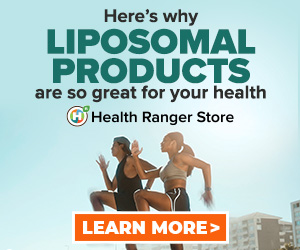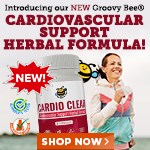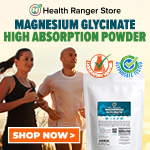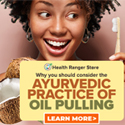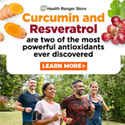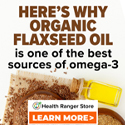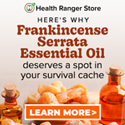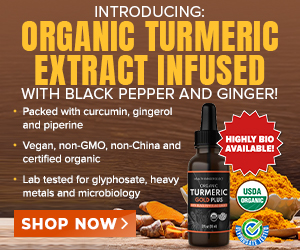
Knowing the Difference Between Natural and Synthetic Vitamins Is Vital to Good Health
Thursday, November 06, 2008 by: Lynn Berry
Tags: vitamins, health news, Natural News
- Maple syrup: Nature's golden superfood and its sweet health benefits
- Manufacturing surge under Trump sparks optimism amid concerns over economic strains
- Possible biosignatures detected on Exoplanet K2-18b, raising hopes for alien life
- Aerosolized bioweapons? Strange “diploid biomasses” falling out of the sky in Florida captured under the microscope
- U.S. demands U.K. protect FREE SPEECH, repeal hate speech authoritarianism, in latest trade deal negotiations
- Russia escalates censorship war, targets over 200 VPN apps amid Google resistance
- HHS Secretary Kennedy will likely investigate the following environmental exposures as CAUSES OF AUTISM and brain damage in children
- Analysis: The coming economic collapse, a mass uprising and Trump's three secret weapons to halt the growing revolt
- Trump's bold trade overhaul reaches a crossroads with Italy, as "fair deals" promise sparks global attention
- Mike Adams releases country western hit single: Goin’ Back in Time is Comin’ Home
- TAKE IT DOWN Act advances in Congress amid free speech concerns
- Majority of Americans now favor mass deportation of illegal immigrants, polls show shift in public sentiment
- Kiss Your Genetic Privacy Good-Bye! 23andMe Gets Green Light to Sell Your Intimate Genetic Details to Anyone They Want
- Kava: The Pacific's healing wonder
- M.W. Walbert’s “The Coming Battle” traces the evolution of money power in America
- Widespread social and economic unrest: Steve Quayle issues urgent financial warning of imminent asset collapse in new interview with Mike Adams
- Israeli lobbyists boast of controlling US national security policy in leaked AIPAC audio
- HHS secretary Robert F. Kennedy Jr. announces groundbreaking series of studies to identify environmental toxins causing AUTISM
- Aerosolized bioweapons? Strange “diploid biomasses” falling out of the sky in Florida captured under the microscope
- Analysis: The coming economic collapse, a mass uprising and Trump's three secret weapons to halt the growing revolt
- Widespread social and economic unrest: Steve Quayle issues urgent financial warning of imminent asset collapse in new interview with Mike Adams
- TAKE IT DOWN Act advances in Congress amid free speech concerns
- Israeli lobbyists boast of controlling US national security policy in leaked AIPAC audio
- Kiss Your Genetic Privacy Good-Bye! 23andMe Gets Green Light to Sell Your Intimate Genetic Details to Anyone They Want
- Mike Adams releases country western hit single: Goin’ Back in Time is Comin’ Home
- U.S. lawmakers investigate Meta over alleged China collaboration
- CLOT SHOT PLANDEMIC UNFOLDING: Fibrous, rubbery clots caused by covid injections have prion-like seeding activity
- Fauci is back in the limelight, and he’s busy promoting a future COVID or FLU pandemic
- Defunding DEADLY mRNA jabs: Government funding for mRNA technology being scrutinized and sidelined until proven "safe and effective" for real
- Russia escalates censorship war, targets over 200 VPN apps amid Google resistance
- Curcumin’s ancient healing power supercharges muscle recovery, and its effects are compounded with anti-inflammatory foods and supplements
- I Want My Bailout Money – new song and music video released by Mike Adams
- I Want My Bailout Money – new song released by Mike Adams
- Government waste exposed: Hegseth supports Musk’s demand for accountability from federal workers
- U.S. approves new Russian ambassador as diplomatic thaw continues
- Federal employees whine over DOGE's new directive requiring them to do a 5-point summary of weekly accomplishments
- Newly released JFK files reveal Pentagon's role in creating Lyme disease and covid in the same lab
- Analysis: The coming economic collapse, a mass uprising and Trump's three secret weapons to halt the growing revolt
- Aerosolized bioweapons? Strange “diploid biomasses” falling out of the sky in Florida captured under the microscope
- Kiss Your Genetic Privacy Good-Bye! 23andMe Gets Green Light to Sell Your Intimate Genetic Details to Anyone They Want
- Mike Adams releases country western hit single: Goin’ Back in Time is Comin’ Home
- European Court of Justice: Healthcare professionals who promoted or administered COVID-19 vaccines are CRIMINALLY LIABLE for any harm caused
- Widespread social and economic unrest: Steve Quayle issues urgent financial warning of imminent asset collapse in new interview with Mike Adams
- Federal employees whine over DOGE's new directive requiring them to do a 5-point summary of weekly accomplishments
- U.S. approves new Russian ambassador as diplomatic thaw continues
- CLOT SHOT PLANDEMIC UNFOLDING: Fibrous, rubbery clots caused by covid injections have prion-like seeding activity
- Government waste exposed: Hegseth supports Musk’s demand for accountability from federal workers
- I Want My Bailout Money – new song and music video released by Mike Adams
- I Want My Bailout Money – new song released by Mike Adams
- Fauci is back in the limelight, and he’s busy promoting a future COVID or FLU pandemic
- Defunding DEADLY mRNA jabs: Government funding for mRNA technology being scrutinized and sidelined until proven "safe and effective" for real
- Trump administration poised to overhaul crypto regulations with new SEC leadership
- Now you can HEAR chemistry: Health Ranger translates molecules into music in stunning video demonstration that will blow your mind (and your ears)
- South Carolina Congressman proposes new $250 bill and wants Trump on the front
- Red Cross issues warning to stop blood plasma donations from vaccinated people
- Scientists confirm: GENIUS brain function can be spontaneously unleashed in humans without any apparent cause
- EPA advisor admits the agency is funneling billions to climate groups ahead of Trump’s return to White House
- HYSSOP: What research reveals about the health benefits of this ancient holy herb
- Two containers with completed ballots fall out of truck in Florida
- Newly released JFK files reveal Pentagon's role in creating Lyme disease and covid in the same lab
- Mike Adams releases country western hit single: Goin’ Back in Time is Comin’ Home
- Global leaders unite to clamp down on “misinformation” with UN-backed Cascais Declaration
- BREAKING: 2025 NDAA authorizes mandatory military draft of WOMEN across America… as Pentagon pursues global NUCLEAR war with both Russia and China at the same time
- I Want My Bailout Money – new song released by Mike Adams
- Michael Yon warns of a ZIONIST TAKEOVER in Trump’s second administration
- The Health Ranger releases “Vaccine Zombie” song and music video, using AI-animated zombies for the music video
- Ozempic and Wegovy weight loss drugs are injectable LIZARD VENOM PEPTIDES that may unleash a devastating wave of organ failure… side effects align with symptoms of SNAKE BITES
- BOMBSHELL: DNA testing kits are a SCAM to develop ethnic-specific bioweapons
- Israeli soldiers accused of even more torture and abuse in the West Bank
- These 13 countries just signed an agreement to engineer a global FAMINE by destroying food supply
- RFK Jr. clears key hurdle: Sen. Susan Collins backs controversial HHS nominee, signaling a new era for health policy
- NASA admits that climate change occurs because of changes in Earth’s solar orbit, and NOT because of SUVs and fossil fuels
However many of the better quality vitamins, those with good doses, can often only be purchased via a natural therapist or online. This is according to a study looking for the best quality multi-vitamin on the market. Usana ranked at 74%, 20% more than the next brand, but much more than Herron, a supermarket brand ranked at 2% (1).
The difference in quality is due to dosage amount, synthetic verses natural, and the range of ingredients. Synthetic vitamins are typically cheap, and typically sold in the supermarket. They typically lack the necessary molecular structure of the natural version which goes unrecognized by the body and are unlikely to improve the body's cells.
A number of studies have had the aim of showing the impotency of vitamins -- that vitamins are bad for you, that they have no effect. However the vitamins in question were in the main synthetic vitamins category. This is particularly the case as Mike Adams points out with Vitamin E studies conducted over 20 years. The aim was to discredit the vitamin and they used synthetic Vitamin E to prove it. (See this article that lays out how studies are constructed to convince you of a particular point of view (2).)
Adams points out in this article that the aim of the JAMA (Journal of the American Medical Association) is to warn people about the dangers of synthetic vitamins -- they can harm you or they have no effect. So not only do we have anecdotal evidence about the quality and efficacy of synthetic vitamins but now we have the apparent scientific evidence.
Studies involving Vitamin E have typically used a synthetic chemical which has a different molecular structure to the natural Vitamin E. Adams mentions that this has led to debate over safe dosage levels and about the benefits of taking antioxidants at all (3). At no time was there clarity about what was actually studied -- synthetic or natural. This means that people could have been mislead and scared off from taking the natural Vitamin E.
Organic Consumers (www.organicconsumers.org) warns people against synthetic vitamins particularly; fat-soluble ones as these build up in the fat tissues, fat deposits and the liver. In addition they warn that the base of the synthetics can consist of petrochemical derivatives, nicotine and coal tars (by-products of coal).
Byron Richards points out what to look for when buying vitamins (see (5)) and says that it depends on the vitamin. In Vitamin B what is necessary are co-enzymes. His two part article is well worth reading.
With the price of groceries increasing, you may be considering a change in vitamin brands. First ask yourself whether the product is natural or synthetic. If it is natural, consider the dosage range and amount, and compare.
References:
1. (www.7perth.com.au/view/today-tonight-article...) reporting on a study by MacWilliam, L, MSc FP (2007), NutriSearch Comparative Guide to Nutritional Supplements, Fourth Edition, Northern Dimensions Publishing
2. (www.naturalnews.com/021653.html)
3. (www.naturalnews.com/002363.html)
4. (www.organicconsumers.org/nutricon/qa.cfm)
5. (www.naturalnews.com/023169.html)
About the author
Lynn Berry is passionate about personal development, natural health care, justice and spirituality. She has a website at www.lynn-berry.com.Vitamins at FETCH.news
Get independent news alerts on natural cures, food lab tests, cannabis medicine, science, robotics, drones, privacy and more.
Take Action: Support Natural News by linking to this article from your website
Permalink to this article:
Embed article link: (copy HTML code below):
Reprinting this article:
Non-commercial use OK, cite NaturalNews.com with clickable link.
Follow Natural News on Facebook, Twitter, Google Plus, and Pinterest
Science News & Studies
Medicine News and Information
Food News & Studies
Health News & Studies
Herbs News & Information
Pollution News & Studies
Cancer News & Studies
Climate News & Studies
Survival News & Information
Gear News & Information
News covering technology, stocks, hackers, and more



"Big Tech and mainstream media are constantly trying to silence the independent voices that dare to bring you the truth about toxic food ingredients, dangerous medications and the failed, fraudulent science of the profit-driven medical establishment.
Email is one of the best ways to make sure you stay informed, without the censorship of the tech giants (Google, Apple, Facebook, Twitter, YouTube, etc.). Stay informed and you'll even likely learn information that may help save your own life."
–The Health Ranger, Mike Adams










